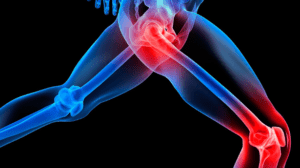Cholesterol and Cardiovascular Disease
Struggling with high blood pressure?…Learn the real cause of heart disease as a whole. New research is once again showing that it is our diet that decides our overall health and what we have been being told to cut out or add more of is incorrect. Without meaning to labour the subject, sugar is again being warned as the main culprit for most if not all inflammation and overall health issues. Fat is not the enemy!
Even though the death rate from cardiovascular diseases—which includes heart attacks and strokes—declined by 29 percent between 2001 and 2010, it’s still the number one cause of death in the U.S, despite advances in medical technology that should have radically reduced the rate. According to the U.S Centres for Disease Control and Prevention, about 800,000 Americans die from cardiovascular disease annually.
A quarter of these deaths – or about 200,000—could be prevented through simple lifestyle changes, and more than half (6 out of 10) of the preventable heart disease and stroke deaths occur in people younger than 65. If you want to understand the causes of heart disease, you have to look at how your arteries incur damage, and what factors contribute to blood clotting. Contrary to popular belief, there’s no fat (cholesterol) clogging the pipe at all.
Total cholesterol will tell you virtually nothing about your disease risk (unless it’s exceptionally elevated, above 330 or so, which would be suggestive of familial hypercholesterolemia –about the only circumstance in which a cholesterol-lowering drug would be appropriate in my opinion). Two ratios that are far better indicators of heart disease are:
· Your HDL-to-total-cholesterol ratio: The higher this number, the better as a low HDL ratio is a very potent heart disease risk factor. Just divide your HDL level by your total cholesterol, This percentage should ideally be above 24 percent. Below 10 percent, it’s a significant indicator of risk for heart disease.
· Your triglyceride-to-HDL ratios: This ratio should ideally be below 2.
Additional risk factors for heart disease include:
· Your fasting insulin level: Any meal or snack high in carbohydrates like fructose and refined grains generates a rise in blood glucose and then insulin to compensate for the rise in blood sugar. The insulin released from eating too many carbs promotes fat storage and makes it more difficult for your body to shed excess weight; and excess fat, particularly around your belly, is one of the major contributors to heart disease. One typically requires a physician’s lab order for this test but it is relatively inexpensive even if you have to pay for it yourself.
· Your fasting blood sugar level: Studies have shown that people with a fasting blood sugar level of 100 to 125 mg/dl had a nearly 300 percent higher risk of having coronary heart disease than people with a level below 79 mg/dl. I personally believe that you should make the changes needed to get your fasting blood sugar below 80, and this is easily monitored at home using a blood glucose meter.
· Your iron level: Iron can be a potent driver of oxidative stress, so if you have excess iron levels you can damage your blood vessels and increase your risk of heart disease. Iron levels can be monitored by testing blood levels of ferritin; ideally, your level should be between 60 and 80 ng/nl.
In a nutshell, preventing cardiovascular disease includes reducing chronic inflammation in your body, and a proper diet is an absolute cornerstone here. Although saturated fat has taken the blame for causing heart disease for the last several decades, even mainstream medicine is coming to the realization that the primary culprit in heart disease is sugar consumption.
– Dr. Joseph Mercola: Fat For Fuel
As Dr. Mercola rightly concludes, medication is not our route to a healthier lifestyle. We need to focus a great deal more on our daily diet in order to fully repair the damage that has been done by incorrect advice in the past. This means reassesing what we consider to be good or bad for us and, as always, promoting a good diet over medication of any kind.






